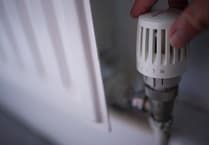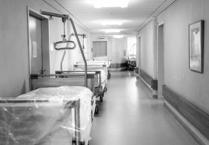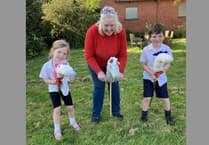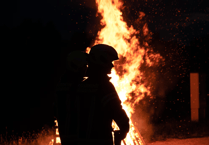HEALTH bosses are urging people to take steps to protect themselves as pressures rise in accident and emergency departments.
Reports are emerging that Torbay Hospital is under serious pressure with up to 20 ambulances waiting at the accident and emergency unit.
Patients are said to have been waiting for up to 12 hours.
The NHS in Devon has been reminding people to help take care of their own health as hospitals cope with increasing numbers of patients.
Dr Peter Collins, Chief Medical Officer for NHS Devon, said: ‘We are seeing increased numbers of people attending for minor injuries and ailments that can be quickly and easily treated elsewhere, so please choose the right service for your needs and only go to ED in an emergency.’
Winter illnesses, including flu, COVID-19 and respiratory syncytial virus (RSV), are circulating widely, with emergency department attendances on the rise.
Everyone eligible is being encouraged, particularly and elderly, pregnant women and those with pre-existing health conditions, to take up vaccinations which will reduce the risk of getting seriously ill.
School-aged children in reception through to year 11 are also eligible for a free flu vaccine, delivered as a nasal spray in schools or as an injection for those with medical or faith exemptions.
Two and three-year-olds as well as children aged six months to two years with certain health conditions, can also receive the flu vaccine through their GP.
Cases of norovirus, which causes vomiting and diarrhoea, are circulating at higher levels than average so far this year.
Regularly washing hands with soap and warm water for 20 seconds and using bleach-based products to clean surfaces are effective ways to stop the spread of norovirus and other infections.
Anyone with respiratory symptoms such as a cough or sore throat, along with a fever, should consider giving social gatherings a miss as it is best to avoid close contact with other people, especially those who are vulnerable, such as the elderly or those with weakened immune systems.
If going out in crowded places, consider wearing a facemask to reduce the risk of infecting others.
Anyone who has had diarrhoea and vomiting, should avoid school or work for 48 hours after symptoms stop and do not visit loved ones in care homes or hospitals to reduce the chances of causing outbreaks in these settings.
Getting plenty of rest, drinking lots of water, and taking over-the-counter medications are often effective ways to deal with common minor illnesses like colds, sore throats or coughs.
Antibiotics do not work against viruses, which are the usual cause of these conditions.
Taking antibiotics when not needed can contribute to antibiotic resistance, making it harder to treat bacterial infections in the future.
The Met Office has given a cold weather warning for this week from January 1 to 4.
Maintain indoor temperatures of at least 18°C, particularly those who are older or live with elderly people, young children, or those with long-term health conditions.
If spending time outdoors, wear plenty of warm clothing.
Dr Peter Collins, Chief Medical Officer for NHS Devon, said: ‘No one wants their plans derailed by a bout of norovirus or flu.
‘Take simple steps to reduce your risk of infections and their consequences this winter – including taking up all the vaccines you may be eligible for including flu, COVID and RSV.
‘You can also help reduce the risk of passing infections on to others through frequent handwashing and catching coughs and sneezes in a tissue.
‘If you have diarrhoea and vomiting, do try and avoid passing it on by staying away from work or school for 48 hours after symptoms have stopped and avoid visiting vulnerable loved ones, especially if they are in a care home or hospital.
‘It’s vital that those who need medical help come forward as they usually would – using 999 and A&E in life threatening emergencies and 111 online for everything else, alongside their GP practices and pharmacies.
‘Staff in our Devon hospitals are working hard to treat people as quickly and safely as possible, but there are things local people can do to help ease pressures and ensure that people with the most urgent needs can be cared for quickly.’
The message from the NHS in Devon is that urgent and emergency care is there needed it, but please choose the right service.
Continue to call 999 in emergency and life-threatening cases - when someone is seriously ill or injured, or their life is at risk.
Go to NHS 111 online if you need medical help or advice, or you are unsure about whether you should go to hospital; you can also phone 111
Check local hospital trust websites for information on Minor Injury Units and Urgent Treatment Centres.
If you, or someone you know, experiences a mental health crisis you can access support from 111.
Play your part this winter by taking action to look after yourselves and loved ones, checking in on vulnerable family members and neighbours. A first step is making sure your medicine cabinet is well-stocked.
Please pick up loved ones who are ready to be discharged from hospital.
Make use of community pharmacies, which can advise on minor illnesses and provide medications. Pharmacists can now provide advice and treatment for seven common illnesses.




